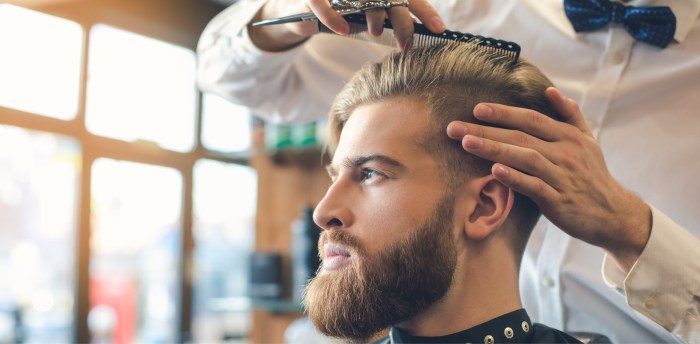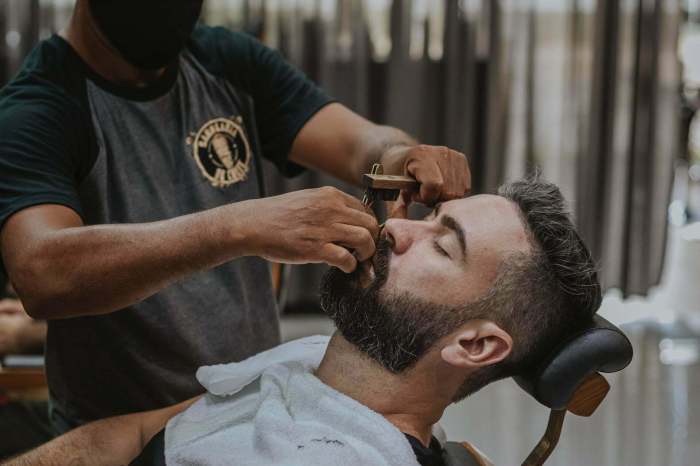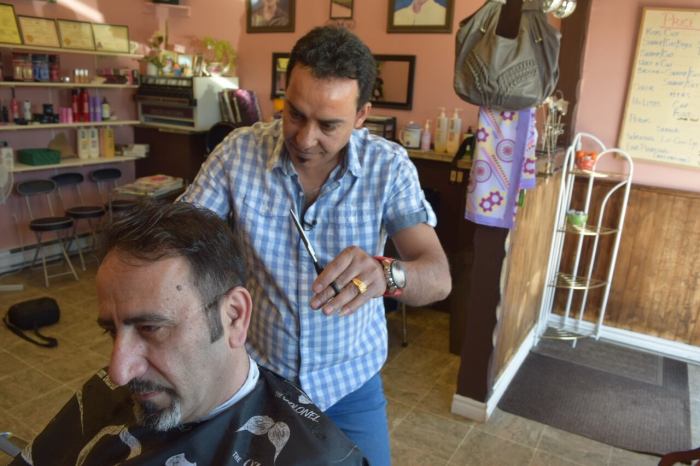Barber styling shops and cosmetology salons are inspected – Inspections of barber styling shops and cosmetology salons are crucial for maintaining public health and safety standards in the beauty industry. These establishments provide essential services to the community, and it is paramount that they adhere to strict regulations to prevent the spread of infections and ensure the well-being of their clients.
This comprehensive guide delves into the purpose, frequency, and scope of inspections for barber styling shops and cosmetology salons. It explores the health and safety standards that these establishments must meet, the licensing and certification requirements for barbers and cosmetologists, and the importance of sanitation and hygiene practices.
Additionally, the guide discusses emerging trends and innovations in the industry, highlighting how they are influencing the services offered and the overall customer experience.
Inspections of Barber Styling Shops and Cosmetology Salons

Inspections of barber styling shops and cosmetology salons are crucial for ensuring public health and safety. These establishments provide essential services to the community, but they also have the potential to spread infections and cause injuries if proper standards are not met.
Inspections are conducted regularly by local health departments or other regulatory agencies. The frequency and scope of inspections vary depending on the jurisdiction, but they typically include a review of the establishment’s sanitation practices, equipment maintenance, and employee training.
Inspectors use a set of criteria to assess compliance with health and safety standards. These criteria may include:
- Cleanliness and disinfection of surfaces
- Proper storage and disposal of chemicals
- Maintenance and calibration of equipment
- Employee training on infection control
- Availability of personal protective equipment
Health and Safety Standards
Barber styling shops and cosmetology salons must meet specific health and safety standards to protect their customers and employees. These standards are designed to prevent the spread of infections, reduce the risk of injuries, and ensure the overall well-being of everyone in the establishment.
Some of the most important health and safety standards include:
- Proper hand hygiene practices
- Use of disinfectants to clean surfaces and equipment
- Sterilization of tools and instruments
- Safe disposal of sharps and other hazardous materials
- Adequate ventilation to prevent the buildup of harmful fumes
Failure to meet these standards can have serious consequences, including the spread of infections, injuries to customers or employees, and legal penalties.
Licensing and Certification Requirements
Barbers and cosmetologists must be licensed or certified in most jurisdictions. These requirements ensure that these professionals have the necessary training and skills to provide safe and effective services.
To obtain a license or certification, barbers and cosmetologists must typically complete an accredited training program and pass a state or national exam. The training programs cover a range of topics, including sanitation, infection control, hair cutting and styling, and skin care.
Operating without a valid license or certification is illegal and can result in fines or other penalties.
Sanitation and Hygiene Practices
Sanitation and hygiene practices are essential for preventing the spread of infections in barber styling shops and cosmetology salons. These practices include:
- Regular cleaning and disinfection of surfaces, equipment, and tools
- Proper hand hygiene practices for employees and customers
- Use of personal protective equipment, such as gloves and masks
- Safe disposal of sharps and other hazardous materials
- Adequate ventilation to prevent the buildup of harmful fumes
By following these practices, barber styling shops and cosmetology salons can help to protect their customers and employees from the spread of infections.
Customer Service and Communication, Barber styling shops and cosmetology salons are inspected
Customer service and communication are essential for success in the barber styling and cosmetology industries. Barbers and cosmetologists must be able to communicate effectively with their customers to understand their needs and provide the desired services.
Some of the key skills that barbers and cosmetologists need to provide excellent customer service include:
- Active listening
- Empathy
- Patience
- Attention to detail
- Problem-solving skills
By providing excellent customer service, barbers and cosmetologists can build long-term relationships with their clients and increase their business success.
Emerging Trends and Innovations
The barber styling and cosmetology industries are constantly evolving, with new trends and innovations emerging all the time. These trends are influencing the services offered and the overall customer experience.
Some of the most recent trends in the barber styling and cosmetology industries include:
- The use of technology to improve the customer experience
- The growing popularity of natural and organic products
- The increasing demand for personalized services
- The emergence of new hair styling techniques
By staying up-to-date on the latest trends and innovations, barber styling shops and cosmetology salons can attract new customers and keep existing customers coming back for more.
General Inquiries: Barber Styling Shops And Cosmetology Salons Are Inspected
What is the purpose of inspections for barber styling shops and cosmetology salons?
Inspections are conducted to ensure that these establishments comply with health and safety standards, preventing the spread of infections and safeguarding the well-being of clients.
How often are inspections conducted?
The frequency of inspections varies depending on local regulations and the size and type of establishment.
What are the consequences of operating without a valid license or certification?
Operating without a valid license or certification can result in fines, suspension of business operations, or other penalties.

